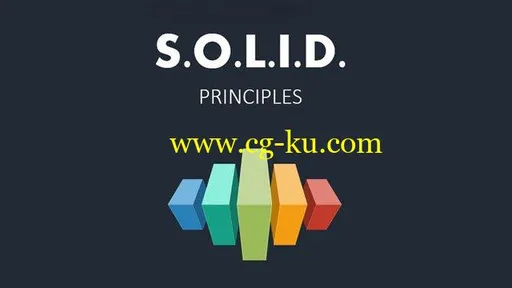.MP4 | Video: h264, 1280×720 | Audio: AAC, 48 KHz, 2 ChGenre: eLearning | Language: English + .VTT | Duration: 5 hours | Size: 633 MBLearn how to develop maintainable software systems applying Design Patterns based on Meta and SOLID PrinciplesWhat you’ll learnDetermine if a class has too many responsibilitiesApply SRP to make classes more granularDetermine the smell of duplication caused by OCP violationApply OCP to remove or prevent duplicationsMake client’s lives more enjoyable by applying ISP, making interfaces more granularDetermine LSP violations which break client’s codeApply LSP to come up with proper inheritanceApply DIP to develop plugin architectureBuild your own simple IoC-ContainerBuild clean API in C#I’m tired to list all the stuff you’ll be able to do after this course )))RequirementsSolid C# BackgroundAt least half of a year of experience in a real-world projectDescriptionSOLID is an acronym which stands for SRP, OCP, LSP, ISP and DIP. These five acronyms in their turn stand for:Single Responsibility PrincipleOpen/Closed PrincipleLiskov Substitution PrincipleInterface Segregation PrincipleDependency Inversion PrincipleIn this course, you’ll learn how to apply meta and SOLID principles so that your application will live a long healthy life.
It means you are going to learn how to write code of the high quality: readable, understandable and reliable.
Improve your knowledge in object-oriented programmingUnderstand the meta principles on which all the other development principles are basedUnderstand the symptoms of code defectsLearn the foundations of SOLID principlesLearn how to detect the violations of SOLID principles and how to fix the problemsLearn how meta principles and SOLID principles are related to each other and how to find the balance between themFoundations of writing object-oriented codeDespite the fact that C# is a very rich on features language, it’s very common to see poorly designed and implemented applications in a real world.
Language by itself does not guarantee that the architecture of an application will be great.
In order to design and build maintainable software, we need to understand the principles of software development.
This video course is exactly about how to achieve clean and maintainable software.
You probably have already heard the following well-known statement: most code sucks.
Well, this course is all about how to produce code which doesn’t suck.
Owning skills of producing a well-designed and well-implemented types is the prerequisite for the other developers to treat you as a decent professional.
Content and OverviewThis course is aimed at middle and senior developers.
Solid experience in C# is required.
There are plenty of code examples throughout this course so that you will learn both theoretical and practical material.
Starting with SOLID principles we will go further to the meta-principles.
Going through the SOLID principles, you’ll also learn about the related patterns.
Then we will get to the problem of contradictions between different principles.
You’ll learn about the relationships between SOLID principles and meta principles.
In general, you’ll learn in this course:SRPOCPLSPISPDIPThese are the SOLID principles.
You’ll learn the background problems that can be solved by particular principle, you’ll see the demonstrations in code, you’ll learn the related patterns to every principle.
Learning DIP you’ll in addition learn what is Dependency Injection, Inversion of Control, IoC-Containers and what are the architectural implications of DI.
Here are other topics you’ll learn in the course:DRY – don’t repeat yourselfKISS – keep it simple stupidYAGNI – You Ain’t Gonna Need ItSoC – separation of concernsCQS – command query separationLaw of DemeterPrinciple of Least AstonishmentInformation Hiding and EncapsulationAPI Development PrinciplesContradiction between SOLID and YAGNIContradiction between OCP and YAGNIWhat is Architecture and DesignTeaching ApproachNo fluff, no ranting, no beating the air.
I respect your time.
The course material is succinct, yet comprehensive.
All important concepts are covered.
Particularly important topics are covered in-depth.
Take this course, and you will be satisfied!————————————————————Keywords related to the course:Software ArchitectureSOLID Principles Tutorial C#SOLID Tutorial C#Software DesignSOLID PrinciplesSRP, OCP, LSP, ISP, DIPWho this course is for:Juniors with a solid C# backgroundMiddle developers who want learn or enhance their knowledge about SOLID principles and ArchitectureSeniors who want to have a good reminder of what they already know

